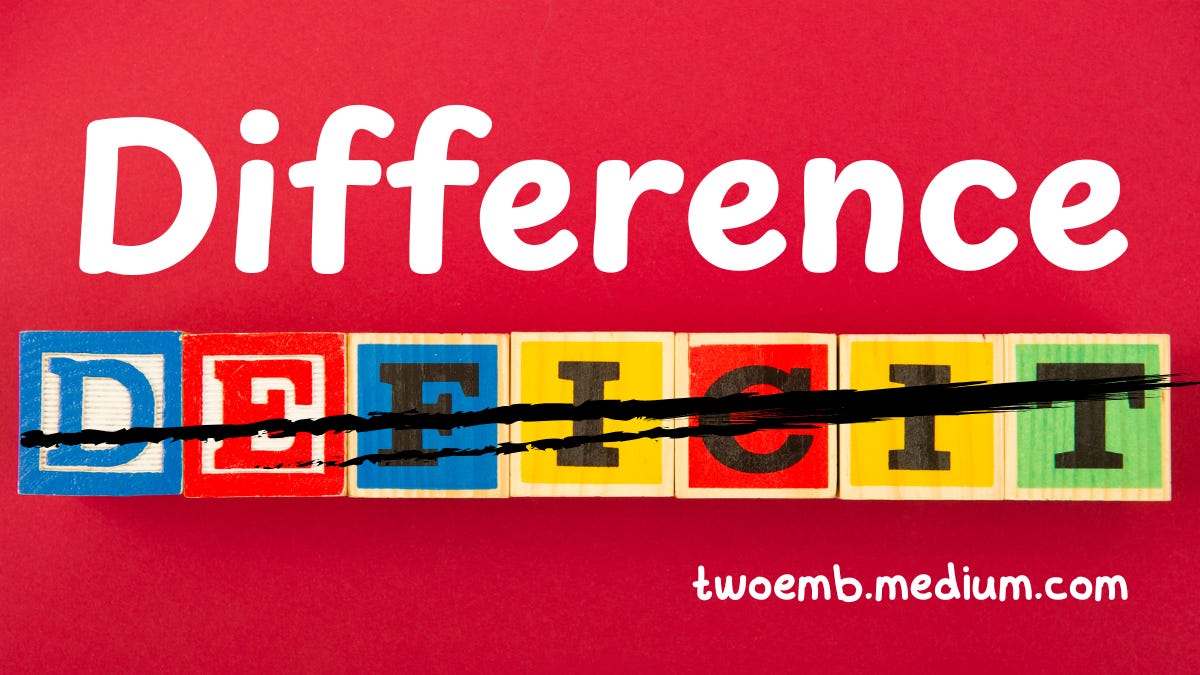Differences Are Not Deficits
Autism, neuronormative ideology, and the ABA industry
Neuronormative ideology
Those who have been following my research might remember I have developed three defining features of neuronormative ideology, based on Sonja K. Foss’ model of ideological criticism. The characteristics of neuronormative ideology are:
suggestions that neurodivergent ways of being and doing are unacceptable, negative, or undesirable;
the pathologization of neurodivergent traits merely because they’re different, and not because they are inherently problematic;
assuming superiority of neurotypical traits and behaviour over neurodivergent traits and behaviour; and
giving authority to neurotypical views while disregarding neurodivergent experiences.
I will begin with the first principle of neuronormative ideology here.
Deficits-focused discourse
Autistic ways of being and doing are treated as unacceptable or undesirable through the pervasiveness of deficits-based discourse around autism.
In order to sell behaviour modification therapies, parent-consumers must first be convinced there are behaviours which require modification, that if those apparently problematic behaviours are not quickly addressed they will lead to negative outcomes for their Autistic child, and that behaviour therapy is the only hope for an Autistic child’s future success.
The Diagnostic and Statistical Manual’s criteria for autism is a literal list of abnormalities and deficits in social reciprocity, communication, and relationships.




